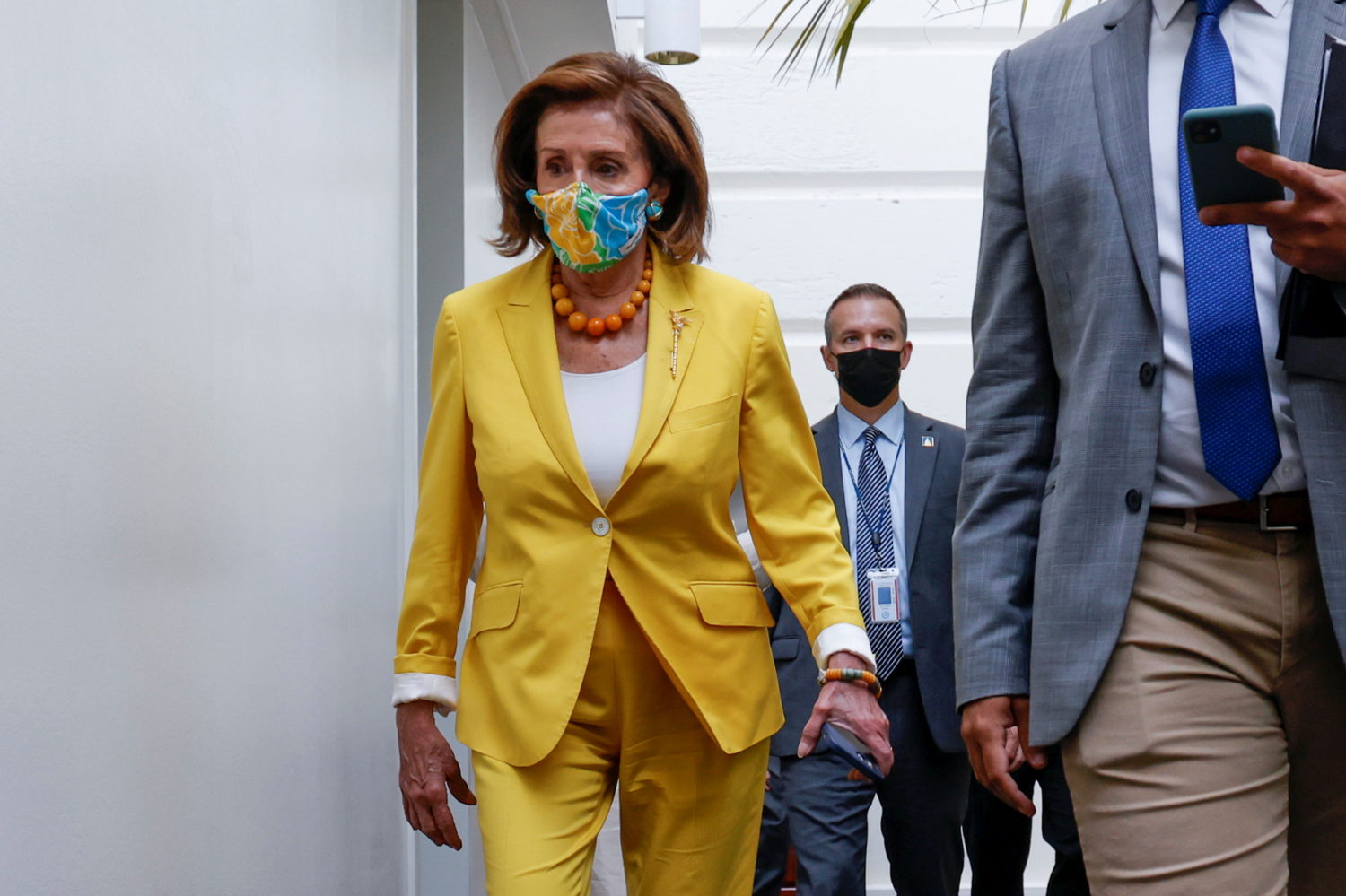
By David Morgan and Susan Cornwell
WASHINGTON (Reuters) -The Democratic-controlled U.S. House of Representatives voted on Tuesday to advance key parts of President Joe Biden’s agenda after reaching a tentative compromise between moderates and progressives over which elements should take priority.
The House voted to move forward on a package that would advance Biden’s ambitious plan for trillions of dollars to expand child care and other social programs, championed by the party’s progressive wing.
The vote was 220-212 with no Republicans supporting the measure.
They agreed to vote by Sept. 27 on a $1 trillion infrastructure bill, a priority for moderate Democrats. House Speaker Nancy Pelosi also said her chamber would work with the Senate to nail down the details of a larger $3.5 trillion budget with increased spending for social programs.
Biden’s fellow Democrats have little room for error as they try to approve the two massive spending initiatives in the House and Senate, where the party holds razor-thin majorities.
“These negotiations are never easy,” said Rules Committee Chairman Jim McGovern after his panel approved the deal. Members of the House briefly returned to Washington this week during their scheduled summer break to vote on the measures.
Pelosi had hoped to quickly approve the $3.5 trillion budget outline, which would enable lawmakers to begin filling in the details on the sweeping package that would boost spending on child care, education and other social programs and raise taxes on the wealthy and corporations.
But centrist Democrats, led by Representative Josh Gottheimer, had refused to go along, saying the House must first pass the infrastructure bill, which has already won approval by Republicans and Democrats in the Senate.
Liberals, including Representative Alexandria Ocasio-Cortez, have said they will not support the smaller package without the larger one, fearing they will lose leverage.
Democrats hold a narrow 220-212 majority in the House.
Pelosi said that the House would work with the Senate on the details of the multitrillion-dollar budget outline, which Senate Democrats plan to pass using a maneuver that gets around that chamber’s normal rules requiring 60 of the 100 senators to agree to pass most legislation.
“It remains for us to work together, work with the Senate, to write a bill that preserves the privilege of 51 votes in the Senate,” Pelosi said. “So we must work together to do that in a way that passes the House and passes the Senate. And we must do so expeditiously.”
House Republican leader Kevin McCarthy blasted Pelosi and other Democrats with bare-knuckle partisan rhetoric for working on an agreement to secure Biden’s domestic spending priorities and voting legislation, without addressing the crisis in Afghanistan.
“Maybe in your caucus, you think it is a great day for you and the Democrats,” McCarthy said. “It’s an embarrassing day to America, it’s an embarrassing day for this floor and it’s embarrassing that you would even move forward with it.”
(Reporting by David Morgan and Susan HeaveyWriting by Andy SullivanEditing by Scott Malone, Jonathan Oatis and David Gregorio)











